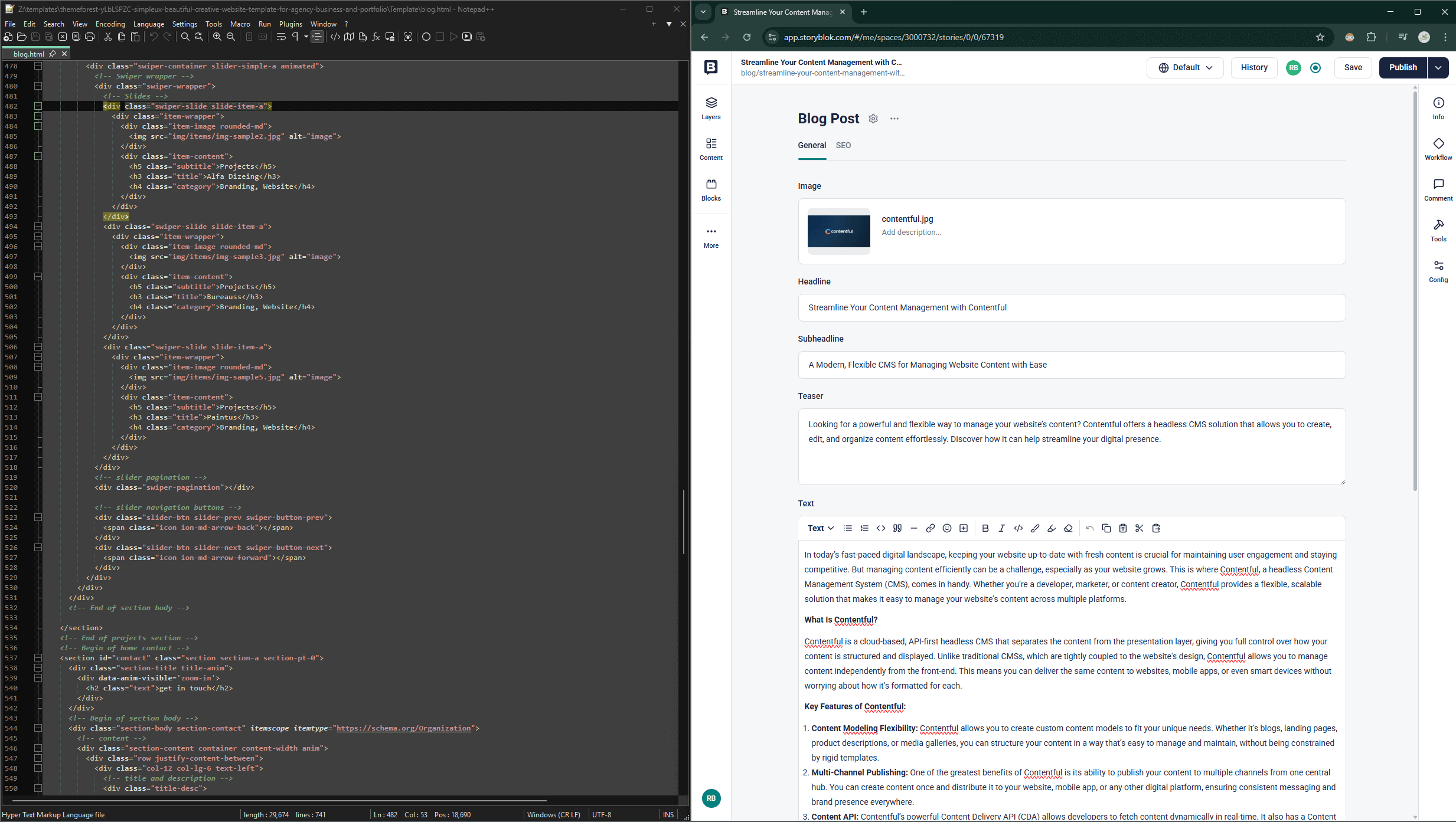Published on March 9, 2025 by Richard Beermier
Introduction
In today's digital age, managing a website efficiently is crucial for businesses of all sizes. A Content Management System (CMS) simplifies this process, allowing businesses to create, update, and manage their online presence without technical expertise. Whether you're a small business owner or a large enterprise, leveraging a CMS can save time, reduce costs, and enhance your digital marketing efforts.
What is a Content Management System?
A Content Management System (CMS) is a software application that allows businesses to create, manage, and modify digital content without needing extensive technical expertise. Popular CMS platforms include WordPress, Contentful, and Storyblok, each offering unique features tailored for different business needs.
Improved Website Management
With a CMS, businesses can update their website quickly without relying on developers. This means content updates, blog publishing, and even design changes can be handled in-house, reducing time and costs.

Enhanced SEO Capabilities
Many CMS platforms come with built-in SEO tools that help businesses optimise their content for search engines. Features like meta descriptions, keyword analysis, and automated sitemaps ensure that your website ranks higher in search results.
Cost-Effective and Scalable
Unlike custom-coded websites that require ongoing developer support, a CMS provides an affordable solution with scalable features. As your business grows, you can easily add new pages, integrate third-party tools, and expand functionality without extensive redevelopment.

User-Friendly Interface
Most modern CMS platforms offer intuitive dashboards that make it easy for non-technical users to manage content. With drag-and-drop functionality, media libraries, and role-based access, teams can collaborate effectively on website updates.
Better Security and Compliance
Security is a critical factor for any business website. CMS platforms regularly update their security protocols, offer SSL integrations, and provide role-based access to prevent unauthorised changes. Additionally, compliance with data protection laws is easier with built-in privacy settings.

Seamless Integration with Marketing Tools
From social media scheduling to email marketing, a CMS allows easy integration with various digital marketing tools. Businesses can connect CRM software, analytics platforms, and automation tools to streamline their online presence.
Why Headless CMS is the Future
Traditional, monolithic CMS platforms like WordPress, Drupal, and Sitecore have long dominated the market, but they come with limitations in flexibility, performance, and scalability. As businesses increasingly demand omnichannel content delivery, the rise of headless CMS platforms has reshaped the digital landscape.
Decoupled Architecture for Greater Flexibility
Unlike traditional CMS platforms, which tightly couple the backend and frontend, a headless CMS separates content management from content delivery. This allows businesses to use any frontend framework, such as Next.js or React, to build high-performance, customised experiences.
Improved Performance and Faster Load Times
By eliminating the bulky backend processing of monolithic CMSs, headless CMS platforms enable faster page loads and improved performance. Content is served via APIs, ensuring a seamless user experience across different devices and platforms.
Omnichannel Content Distribution
With a headless CMS, businesses can push content to multiple platforms beyond just their website. Whether it’s mobile apps, smart devices, or even digital kiosks, content can be dynamically delivered wherever users engage.
Enhanced Security and Scalability
Since headless CMSs don’t have a traditional frontend exposed to cyber threats, they are inherently more secure. Additionally, they are highly scalable, making them ideal for businesses looking to expand their digital presence without performance bottlenecks.
Conclusion
Investing in a CMS can revolutionise how businesses manage their online presence. While traditional CMS platforms still have their place, the shift towards headless CMS solutions is undeniable. From improved SEO to cost-effective scalability and omnichannel content distribution, businesses that adopt a headless CMS will future-proof their digital strategy. If you're looking for a flexible, secure, and high-performing solution, a headless CMS is the way forward.